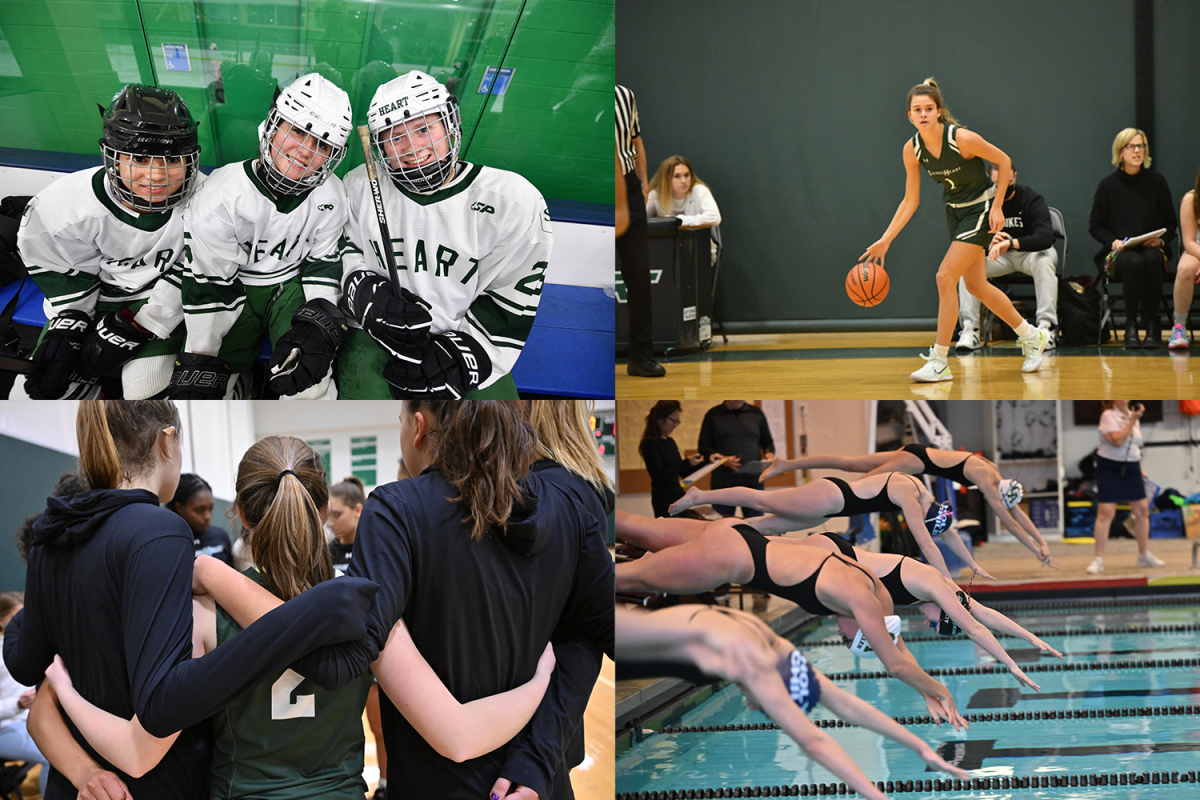When stepping onto the field, court, or track, athletes need to be not only physically prepared but also mentally tough to perform well. Factors such as the current score or the skill level of the opponents can plot athletes against their own minds.
“Games are definitely mentally challenging,” Convent of the Sacred Heart senior and varsity volleyball co-captain Grace McKenney said. “If you make a mistake, you have to be able to shake it off or you will keep making the same mistake. You have to refocus and concentrate on the next play instead of worrying about the last one.”
In an interview on utexas.edu, Dr. John Bartholomew, sport psychologist at The University of Texas at Austin’s College of Education, discusses the impact of stress, pressure, and nerves on athletic performance.
“Experienced athletes have found ways of coping with all of this fairly well,” Dr. Bartholomew said. “But even they can lapse into trying to impose conscious control over something that’s been practiced enough that it should be automatic. They’re not trusting themselves and, worst of all, they’ve started to focus on the outcome.”

Ms. Tara Kupersmith, mother of Sacred Heart sophomore Lizzie Kupersmith and junior Caleigh Kupersmith, understands the importance of mental strength. In preparation for the Ironman competition, she had to overcome anxiety, self-doubt, and injury in order to cross the finish line.
“I am a believer in the idea that when the physical starts to fail, it is possible to use your mind to control your body,” Ms. Kupersmith said. “You would not sign up for a marathon and not do any physical training beforehand. To be a successful athlete, by which I mean, the best that you can be, you also should not show up without mental preparation.”
At Sacred Heart, coaches ensure that athletes are prepared for both physical and mental challenges by not only strengthening the girls’ muscles, but also their minds.
The coaches implement practices such as yoga, meditation, and visualization in order to prepare student athletes for upcoming competitions. Former varsity lacrosse coach and Middle School History Teacher, Mrs. Courtney DePeter, and track and field coach, Mr. Anthony Lukas, even asked their athletes in previous years to read books about the mental game.
“I had the team read [10-Minute Toughness by Jason Selk] because it provides amazing stories, quotes, and exercises on how to mentally prepare yourself for a game,” Mrs. DePeter said. “One of the ways I had them practice this was controlled breathing. I also had them visualize making a mistake and overcoming it, the specific field that we were going to play on, the sounds, the fans, and the refs so that when they stepped out on the field, nothing was a surprise.”
At sports matches, the audience can also have an effect on players’ mental states. While a large crowd can energize athletes, according to freshman and varsity soccer player Stephanie Jordan, supporters from other teams can also be distracting.
“I can psych myself out before a game,” Stephanie said. “The opposing team’s crowd leads to us overthinking the game. If I believe that the other team is amazing, and there is nothing that we can do to win, then I play to not lose, rather than playing to win.”
Shaping an athlete’s mental outlook takes time. According to Ms. Kupersmith, preparing for psychological obstacles in small increments provides strong foundations to perform well.
“Each workout, each early season race, sets your mental preparation,” Ms. Kupersmith said. “The pain and discomfort is temporary. You will get through it.”
-Gabrielle Giacomo, Co-Video Content Editor



King Street Chronicle
Menu
Playing mind games
October 29, 2014
More to Discover






